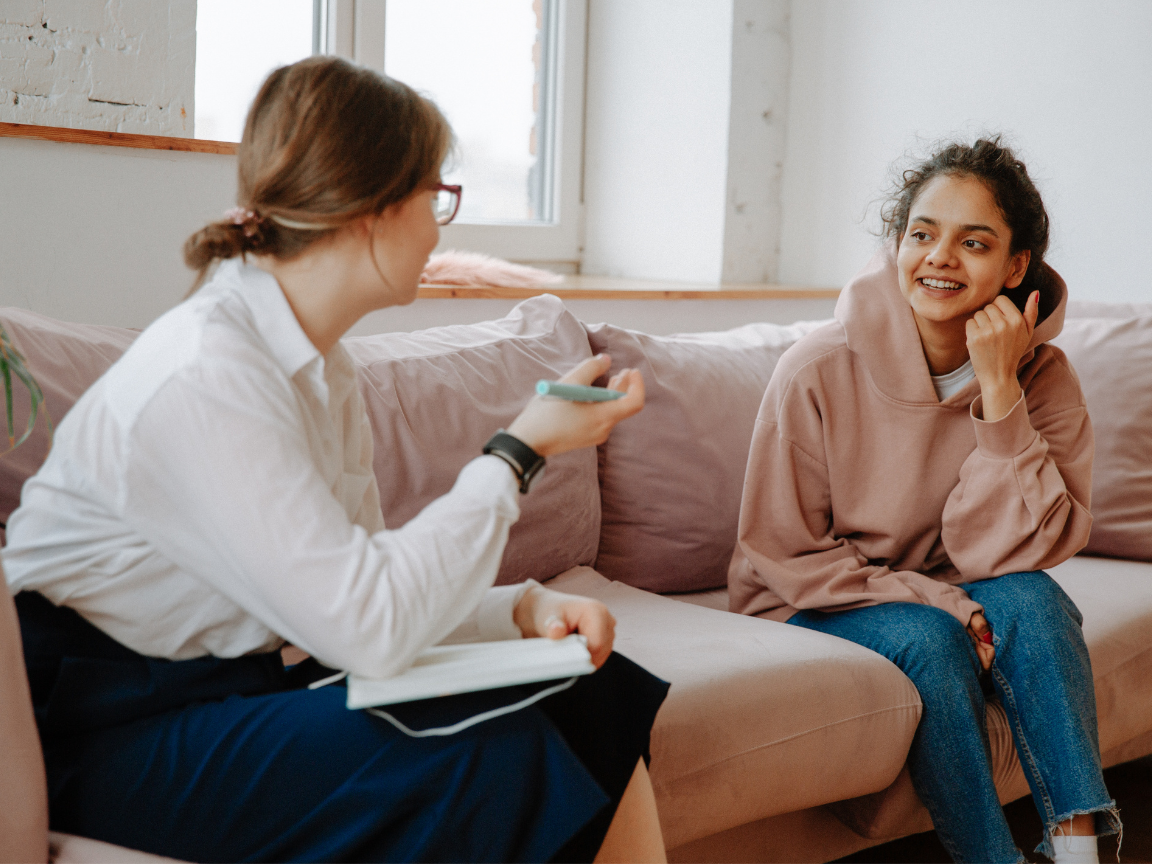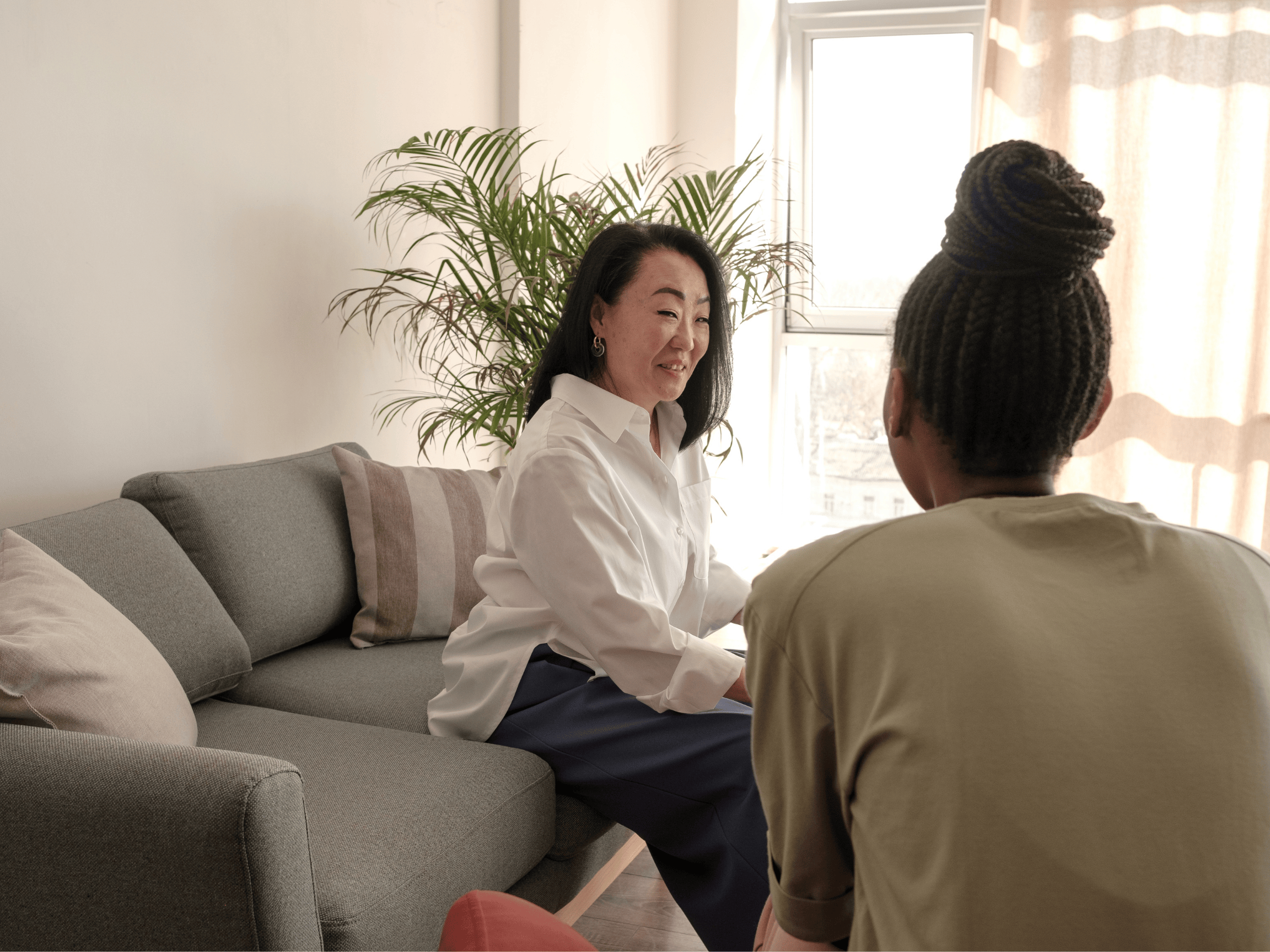When thinking of ways to get help, group therapy often goes unthought of and underappreciated. Many people are quick to imagine therapy as talking one-on-one with someone in a quiet office. But, healing doesn’t always have to happen alone. Group therapy offers the unique opportunity to connect with people who may be struggling like you. It offers an element of social connection that is just not there with individual therapy. But, what exactly does group therapy look like, and how does it work?
What is Group Therapy?
Group therapy can be thought of as a discussion between 3-15 participants being led by a therapist. The therapist acts as a facilitator to support and guide meaningful conversation. These therapy sessions are designed to target a specific topic or focus, such as substance abuse issues, grief, and more. While there is variety, sessions are typically once a week for around an hour.
Differences between Group Therapy and Individual Therapy
Group therapy provides a unique environment with certain elements that individual therapy just doesn’t have. First, group therapy sessions provide opportunities to both give and receive support from people who relate. There is an element of social connection with peers that doesn’t exist in individual therapy.
You can also learn from others in your group, and teach others at the same time. Hearing others share their experiences can help you feel less alone, and sharing your own story can comfort others in return.
Group therapy is also often a cheaper option if money is on a tight budget. Its cost-effective nature allows it to be more accessible to those who may not be able to afford traditional, individual therapy. However, group therapy sessions may also be less flexible than one-on-one therapy.
When to Consider Group Therapy
Group therapy may be the perfect fit for you if you want to be around people who understand what you’re going through. It can provide a solution to feelings of isolation. Group settings can also provide you with new perspectives on how others cope with similar struggles, allowing you to view your own challenges from a different angle. If you want to be held accountable, or improve communication skills, group therapy sessions may also be a great fit. The setting provides a safe environment where you can express yourself and communicate with others.
Benefits of Group Therapy
Group therapy offers a wide range of benefits that go beyond what you might experience in individual therapy. Perhaps the advantage that stands out the most is the sense of community and shared experience between members. Realizing that you are truly not alone, and others are facing similar challenges, can help to ease feelings of shame or isolation.
Being part of a therapy group can provide opportunities for members to encourage one another and celebrate progress together. Furthermore, it can be a place to learn and practice new skills. Through therapist-guided discussions, groups can learn healthy coping strategies for themselves, and discover what has worked for others in the past.
All in all, group therapy serves to remind you that you are not alone, and you are healing alongside others like you.
Myths about Group Therapy
Myth 1: I’ll be forced to share.
- You have complete control over decisions on what you want to share. No one is there to pressure you, and it is understandable that sharing personal details may be difficult.
Myth 2: It’s just people venting.
- Group therapy is structured and led by a therapist who has expertise. While sharing experiences is part of the process, sessions are often focused on growth, learning, and the development of healthier coping skills.
Myth 3: Group therapy isn’t as good as individual therapy.
- While individual therapy and group therapy have their differences, there are certain aspects that you cannot achieve through individual therapy. Research often says that group therapy is just as beneficial as traditional therapy.
Myth 4: I’ll be judged by the other members.
- Therapists are trained in how to create respectful and non-judgemental spaces. Also, since group members often share similar challenges, the therapeutic environment tends to be empathetic, rather than critical.
What the Research Says
Group therapy is often under-utilized, even though research consistently shows that it can be just as effective as individual therapy. Many people have reported that group therapy was helpful for a multitude of issues, including anxiety, depression, trauma recovery, substance use, for survivors of disasters, and much more.
It is also worthwhile to mention that group therapy may not be for everyone. Those who are unwilling to participate or are uninterested in others’ experiences may be poor candidates for these sessions.
An encouraging finding is that the benefits of group therapy on mental health often last long after sessions have ended. Participants often continue to use the skills, insights, and coping mechanisms learned from group therapy for years to come.
How to Get the Most out of Group Therapy
While it can be nerve wracking, ultimately, the more you put into group therapy, the more you’ll gain from it. It’s best to try to push through uncomfortable feelings, as growth happens outside of our comfort zones.
Sharing your thoughts and feelings honestly, even if they come out messy, shows vulnerability, and this vulnerability can help others. Practicing listening, empathy, and offering feedback helps to be an active participant in group therapy. Participating not only helps to build a sense of community, but it helps to strengthen your own learning and connection to the group.
Above all, it is important to be genuine. Being authentic further helps to create the safe, trusting environment that makes group therapy so effective.
Conclusion
Joining sessions for group therapy can be a powerful step towards healing and personal growth. It takes courage to share difficult parts of your life, but doing so can lead to change that lasts for years to come. Group therapy serves as a reminder that healing doesn’t have to happen alone. If you are seeking connections with peers who understand your hardships, booking a group therapy session might be the best next step for you.
- Fogarty, C., Hevey, D., & McCarthy, O. (2019). Effectiveness of cognitive behavioural group therapy for Social Anxiety Disorder: Long-term benefits and aftercare. Behavioural and Cognitive Psychotherapy, 47(5), 501–513. https://doi.org/10.1017/s1352465819000079
- Malhotra, A., Mars, J. A., & Baker, J. (2024, October 29). Group therapy. In StatPearls [Internet]. StatPearls Publishing. https://www.ncbi.nlm.nih.gov/books/NBK549812/
- Shechtman, Z., & Kiezel, A. (2016). Why do people prefer individual therapy over Group therapy? International Journal of Group Psychotherapy, 66(4), 571–591. https://doi.org/10.1080/00207284.2016.1180042















